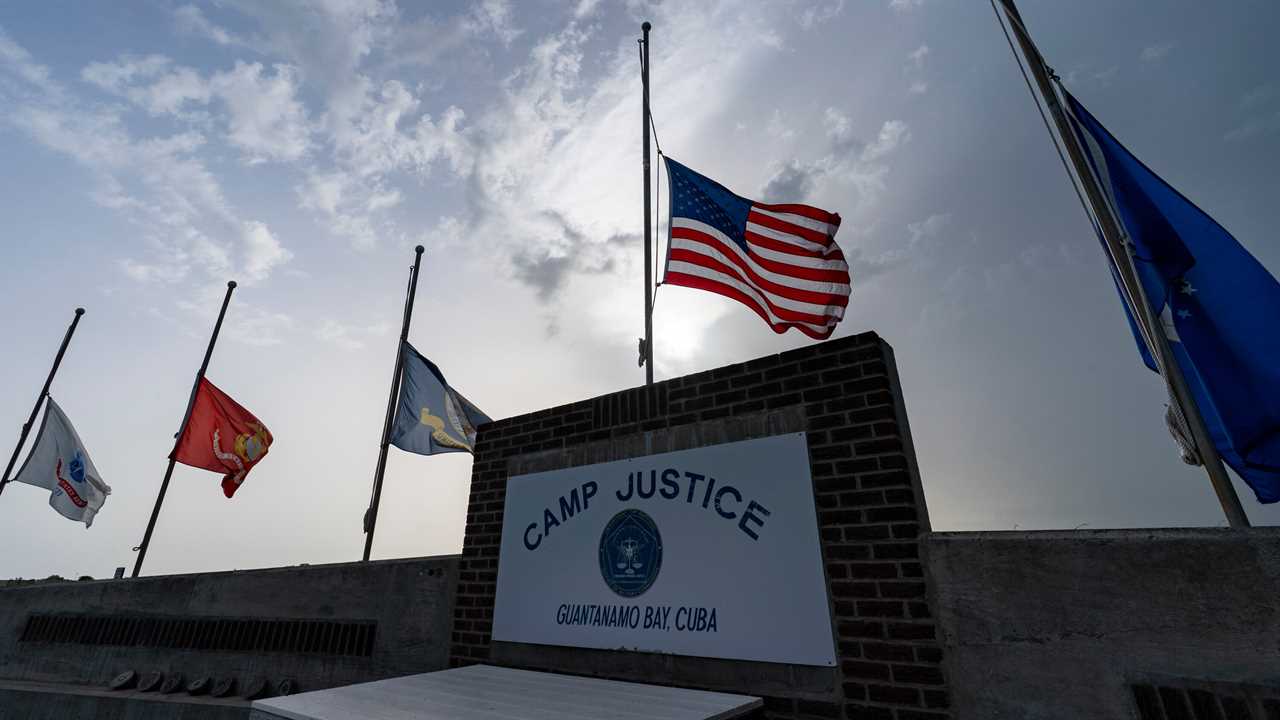
GUANTÁNAMO BAY, Cuba — A key defense lawyer in the long-delayed Sept. 11 attacks proceedings was in quarantine Thursday after he was exposed to the coronavirus, potentially setting back the efforts once again.
Guantánamo, a base of 6,000 residents that sits behind a Cuban minefield, has managed to prevent an outbreak of the virus through quarantine, testing and closures.
But Walter Ruiz, the defense attorney, was with his client, a Saudi prisoner, Mustafa al-Hawsawi, for 90 minutes on Wednesday when guards abruptly ended the meeting. Mr. Ruiz and Mr. Hawsawi were wearing masks, but a medical official ordered Mr. Ruiz confined to his quarters because someone who sat near him on a Navy plane to the base on Tuesday was infected. Mr. Ruiz, who tested negative before and after his arrival, was to be tested again on Friday.
At issue is whether he would be released from quarantine in time for a closed conference Saturday at Guantánamo’s courtroom between the judge, Air Force Col. Matthew McCall, and case lawyers. Prosecutors are seeking the death-penalty in the five-man case and, by law, Mr. Ruiz must be present to represent Mr. al-Hawsawi.
Colonel McCall, who is the fourth judge assigned to preside in the Sept. 11 trial since 2012, has scheduled nine days of mostly administrative hearings to start Tuesday.
More than 100 people, including family members of victims of the attacks, are scheduled to arrive on Saturday for the hearings, the first since the start of the pandemic. It will also be the first court hearing since February 2020 with Khalid Shaikh Mohammed, who is accused of being the plot mastermind, and four other men who are accused of being accomplices in the attacks that killed 2,976 people in New York, Pennsylvania and at the Pentagon 20 years ago.
Before the pandemic, defense lawyers were beginning to call witnesses to contest potential trial evidence as tainted by torture. Since then, court related travel was halted and the judge who was presiding at the time abruptly retired.
Then, in July, the base recorded seven cases of the virus in a few weeks and added day-of-travel tests. Three people tested positive in the month of August, she said, resulting in the quarantine of at least 10 people through contact tracing.
Base health officials also increased mask requirements, consistent with Department of Defense policy. Visitors who arrived last month were told to wear them at all times indoors and also outdoors within six feet of other people.
At the court however, earlier this week, a Navy judge in a different war crimes case waived the mask requirement and presided for two weeks with no mask, and many of the legal teams followed suit. Cmdr. Hayes C. Larsen, the judge, called it “a personal decision” because of “robust screening measures in getting everyone safely to the island.”
The inconsistent masking so troubled another capital defender in the Sept. 11 case, Cheryl Bormann, that she sought emergency permission Wednesday night to participate remotely from a new satellite court for the Guantánamo proceedings near the Pentagon. The judge denied the request, noting that Ms. Borman refused to certify that her client, Walid bin Attash, could be adequately represented with her essentially participating by video conference.
Did you miss our previous article...
https://trendinginthenews.com/usa-politics/how-the-supreme-court-quietly-undercut-roe-v-wade






